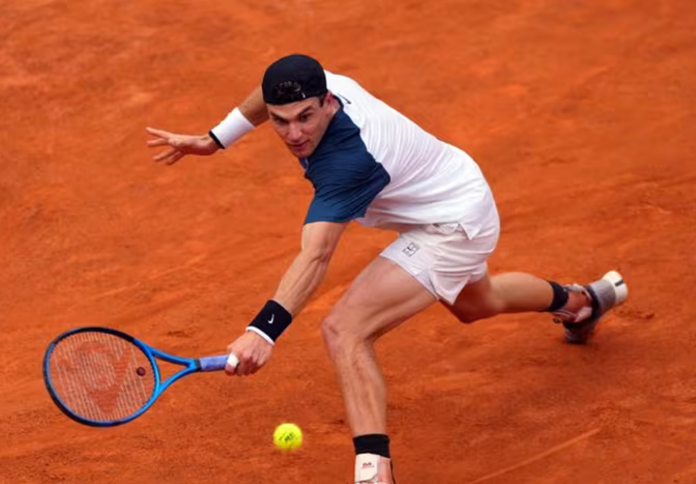After a year of transformation on and off the court, Jack Draper returns to the French Open not just as a higher-ranked contender, but as a player reshaped by experience, resilience, and reinvention. Once seen as a promising but injury-prone talent, Draper has spent the last twelve months redefining his game, stabilizing his mindset, and conquering surfaces that once exposed his vulnerabilities. Now ranked fifth in the world and fresh off a strong clay-court campaign, the 23-year-old Brit arrives in Paris with a rare combination of confidence and composure—ready to chase his first main draw win at Roland Garros, and perhaps something even greater.
A different Draper returns to Paris
Twelve months can change everything. For Jack Draper, that time has meant not just a leap in rankings but a shift in identity. As the 2025 French Open gets underway, the British number one arrives in Paris not just chasing his first main draw win at Roland Garros, but also carrying the kind of quiet confidence that only comes from genuine progress. “I feel really confident, I feel strong, and I feel like I’m in a really good place,” Draper told reporters on the eve of the tournament. “It was good to get a few days at home after Rome. I needed to refresh and reset.”
That quick trip home—brief but meaningful—helped Draper recalibrate after a long clay swing. The 23-year-old had just reached the quarter-finals in Rome, pushing through fatigue to solidify his top-five ranking. Yet for all his recent success, Roland Garros remains uncharted territory in terms of victories. He retired injured on debut, and last year endured a punishing five-set loss in the first round.
From confusion to clarity
What makes Draper’s current form feel different isn’t just the results—it’s the perspective. He admits that a year ago, his game felt adrift, even as the physical tools and talent were clearly there. A coaching shakeup and a reset in playing philosophy helped him stabilize.
“A complete change,” Draper said, reflecting on the journey. “I was very lost in my tennis this time last year. Now I have a real understanding of what I’m trying to do out there, and it’s helped me achieve a lot of success.”
That understanding has translated into consistency across surfaces. His hard-court run included a semi-final at the US Open and a breakthrough title at Indian Wells. On clay, often seen as a British Achilles’ heel, Draper has found footing where few of his compatriots have flourished.
Breaking the clay curse
The narrative that British players can’t win on clay is one Draper is keen to challenge. He doesn’t dismiss the reality—he understands the cultural and training differences—but he also believes the barrier is largely mental. “I think it’s a mentality thing for people from the UK. It’s a bit like when an Argentinian comes and plays on grass,” he explained. “But if you embrace the challenge of trying to be better on the clay and adapt, there’s no reason you can’t be successful on it.”
Draper’s adaptation has been both technical and emotional. Improved footwork, more patience in rallies, and a deeper tactical IQ on slower surfaces have allowed him to hang with—and beat—established clay-court players. His final appearance in Madrid earlier this spring showcased both composure and adaptability.
The power and pressure of progress
With his ranking now at a career-best world number five, Draper is one of the highest-ranked left-handers in the game. It’s a unique advantage in a field dominated by right-handers, but also a position that brings attention and expectation. “I’ve always been someone who’s quite wired,” he admitted. “I have to be progressing, otherwise I struggle. It’s a great quality to have, but I’m learning to switch off and protect my energy.”
That drive to improve has served Draper well—but learning to temper it might be just as critical. The ATP calendar is relentless, and the pressure to perform week in and week out can quickly drain even the most ambitious athlete. Draper has come to understand the value of recovery, not just for his body, but for his mind.
Eyes on the prize
Draper opens his Roland Garros campaign against Italy’s Mattia Bellucci, a talented left-hander ranked outside the top 60. It’s a tricky match-up, but one Draper embraces with quiet belief, not bluster. “I feel there’s a good chance I can do really well,” he said. “I’m looking forward to that challenge.”
He isn’t outlining lofty goals or looking too far down the draw. For now, the mission is simple: win a match at Roland Garros. And then another. The pieces—experience, form, mentality—are finally in place. For the first time in his career, Jack Draper walks into Paris not just hoping to belong, but expecting to compete.










